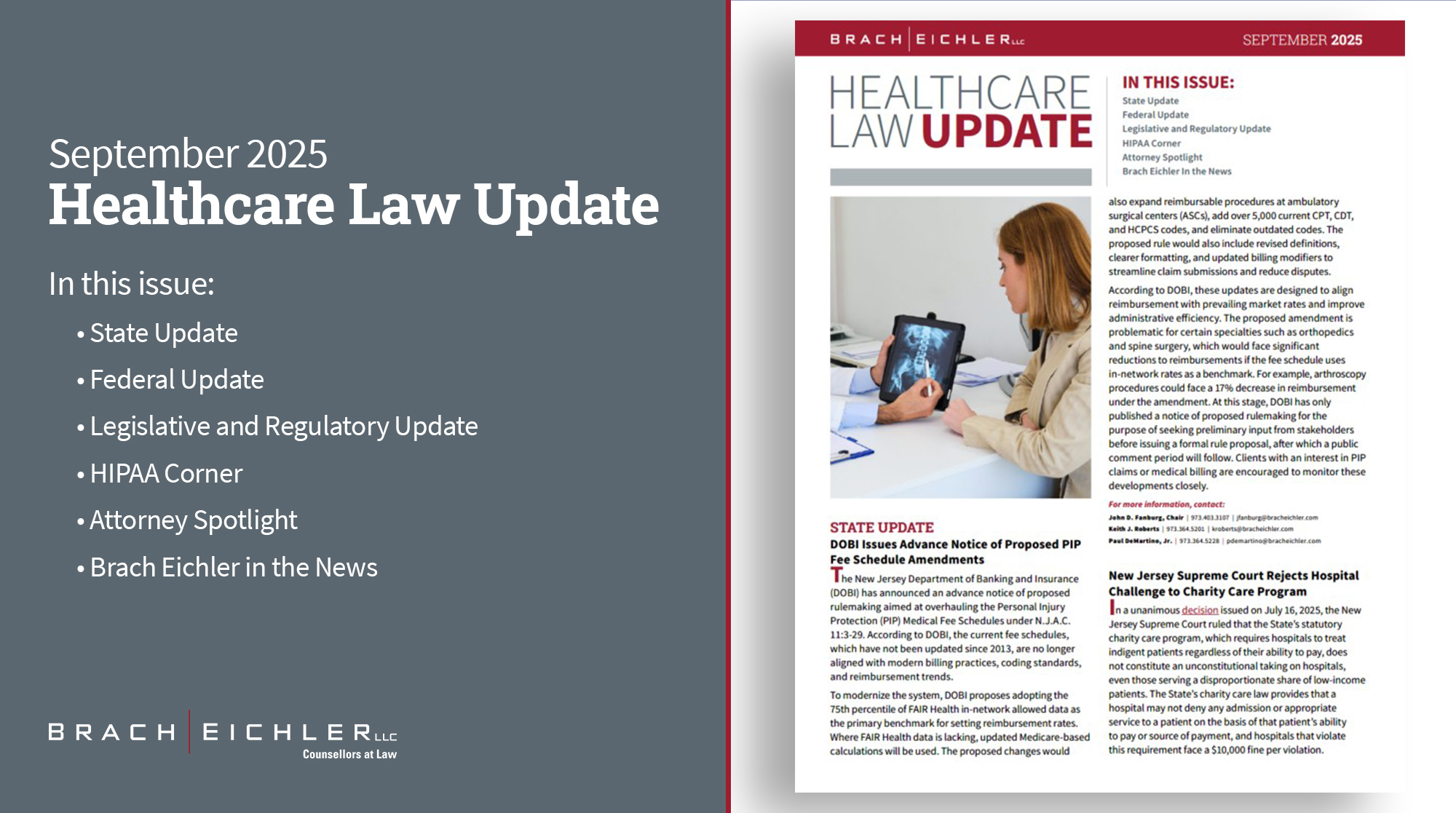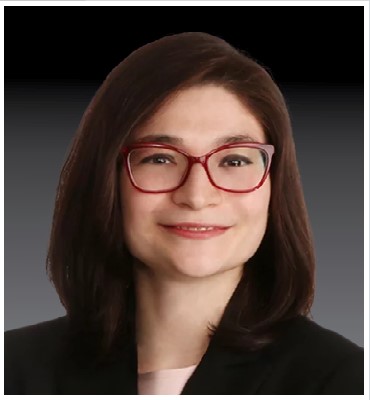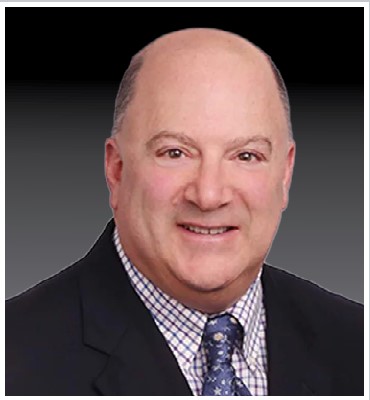
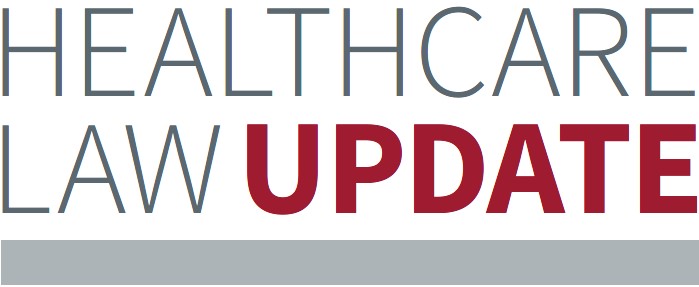

The New Jersey Department of Banking and Insurance (DOBI) has announced an advance notice of proposed rulemaking aimed at overhauling the Personal Injury Protection (PIP) Medical Fee Schedules under N.J.A.C. 11:3-29. According to DOBI, the current fee schedules, which have not been updated since 2013, are no longer aligned with modern billing practices, coding standards, and reimbursement trends.
To modernize the system, DOBI proposes adopting the 75th percentile of FAIR Health in-network allowed data as the primary benchmark for setting reimbursement rates. Where FAIR Health data is lacking, updated Medicare-based calculations will be used. The proposed changes would
also expand reimbursable procedures at ambulatory surgical centers (ASCs), add over 5,000 current CPT, CDT, and HCPCS codes, and eliminate outdated codes. The proposed rule would also include revised definitions, clearer formatting, and updated billing modifiers to streamline claim submissions and reduce disputes.
According to DOBI, these updates are designed to align reimbursement with prevailing market rates and improve administrative efficiency. The proposed amendment is problematic for certain specialties such as orthopedics and spine surgery, which would face significant reductions to reimbursements if the fee schedule uses in-network rates as a benchmark. For example, arthroscopy procedures could face a 17% decrease in reimbursement under the amendment. At this stage, DOBI has only published a notice of proposed rulemaking for the purpose of seeking preliminary input from stakeholders before issuing a formal rule proposal, after which a public comment period will follow. Clients with an interest in PIP claims or medical billing are encouraged to monitor these developments closely.
For more information, contact:
John D. Fanburg, Chair | 973.403.3107 | jfanburg@bracheichler.com
Keith J. Roberts | 973.364.5201 | kroberts@bracheichler.com
Paul DeMartino, Jr. | 973.364.5228 | pdemartino@bracheichler.com
In a unanimous decision issued on July 16, 2025, the New Jersey Supreme Court ruled that the State’s statutory charity care program, which requires hospitals to treat indigent patients regardless of their ability to pay, does not constitute an unconstitutional taking on hospitals, even those serving a disproportionate share of low-income patients. The State’s charity care law provides that a hospital may not deny any admission or appropriate service to a patient on the basis of that patient’s ability to pay or source of payment, and hospitals that violate this requirement face a $10,000 fine per violation.

The lawsuit, which was filed on behalf of several hospitals, including Englewood Hospital and Hackensack Meridian Health, alleged that the State’s requirement to provide free charity care to individuals that are uninsured and meet certain income and asset requirements constitutes an unconstitutional taking under the New Jersey and United States Constitutions. According to the lawsuit, while hospitals are partially reimbursed under the State’s Health Care Subsidy Fund, the fund is not intended to provide full reimbursement of a hospital’s expenses in providing charity care, and the State’s failure to provide at-cost reimbursement constitutes a taking of the hospital equipment and facilities that are required to be used without full reimbursement.
In its decision, the Court held that requiring hospitals to provide care regardless of patients’ ability to pay and barring billing for qualifying patients does not constitute a per se physical taking, finding that there is no evidence that the government physically appropriates hospital property or deprives hospitals of their economically beneficial use. While recognizing that the charity care program imposes economic burdens, the Court underscored that these are not constitutionally compensable takings, particularly given the program’s paramount public interest and the explicit administrative and legislative mechanisms available to hospitals, such as appeals of subsidy amounts and legislative advocacy, for addressing financial shortfalls.
For more information, contact:
John D. Fanburg, Chair | 973.403.3107 | jfanburg@bracheichler.com
Richard Robins | 973.447.9663 | rrobins@bracheichler.com
Andrew Kuder | 973.403.3141 | akuder@bracheichler.com
On June 6, 2025, the U.S. Department of Health and Human Services, Office of Inspector General (OIG) issued a favorable advisory opinion (Advisory Opinion 25-03) regarding a proposed arrangement between a physician practice (Requestor PC), independent management services organizations (Platform MSOs), and telehealth providers (Platform PCs).
Under the proposed arrangement, (i) Requestor PC would lease health care professionals (HCPs) from a Platform PC, and the leased HCPs would provide telehealth services to Platform patients covered by insurance plans with which Requestor PC has contracted, and (ii) a Platform MSO would furnish certain marketing, accounting, information technology, and administrative support services to Requestor PC. In exchange, Requestor PC would pay (i) an hourly fee for leasing HCPs based on the licensure type of each HCP (the Lease Fee), and (ii) a fee for the administrative services provided by Platform MSOs (the Administrative Fee, and together with the Lease Fee, the Service Fee). The proposed arrangement would seek to increase patient access to in-network telehealth providers — particularly in rural and underserved communities.
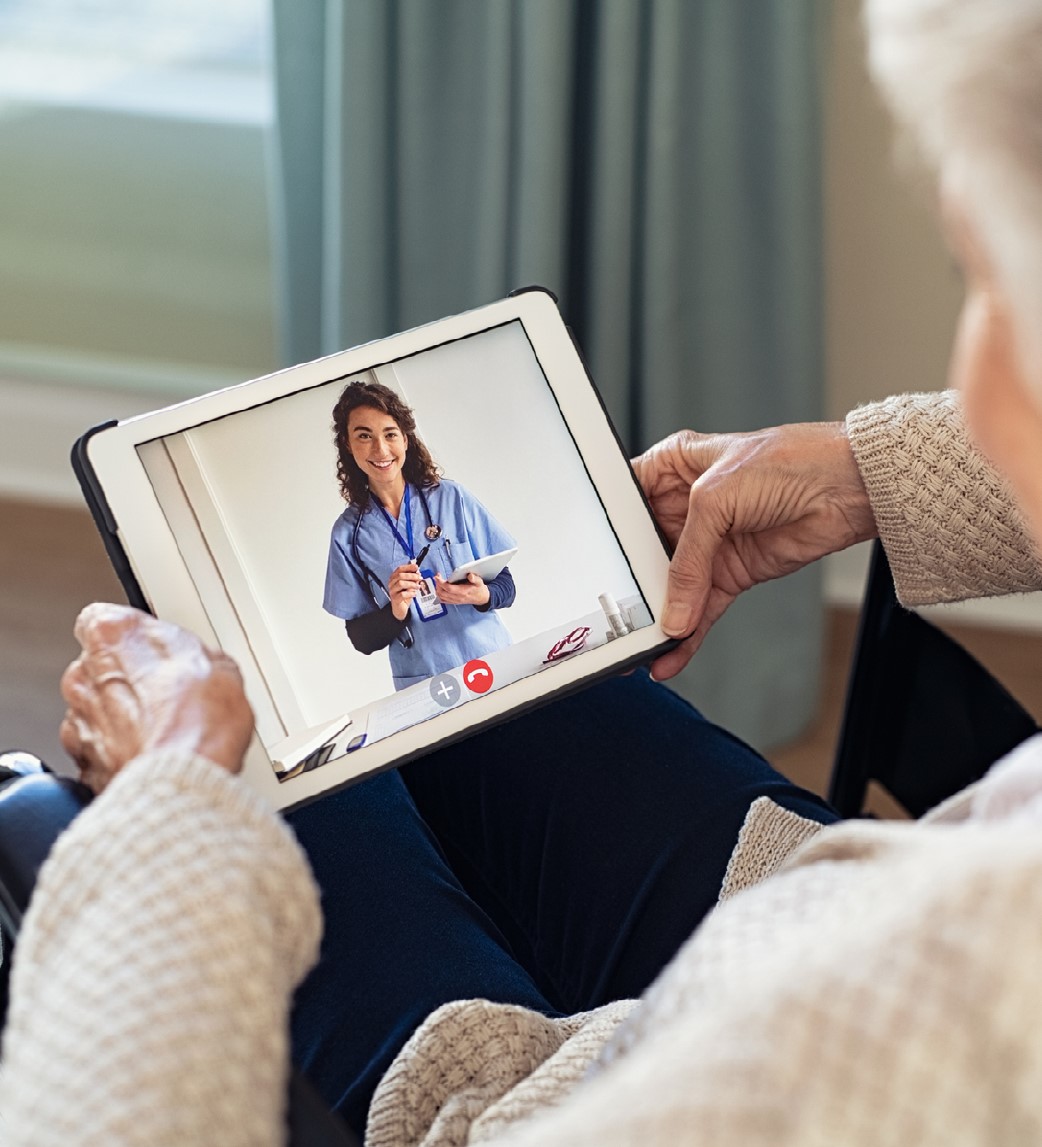
Upon review, the OIG concluded that the Service Fee for the telehealth professional services and the administrative services would be permissible under the Federal Anti-Kickback Statute safe harbor for personal services and management contracts and outcomes-based payment arrangements for the following reasons:
• The Agreement is in writing, signed by the parties, for a term of at least 1 year, and specifies all services provided among the parties.
• Each component of the Service Fee would be set in advance and be determined by a third party valuator to reflect fair market value, and not be based on the volume or value of referrals or other business reimbursable by Federal health care programs.
• Requestor PC pays the hourly fee for the services rendered by leased HCP, regardless of whether Requestor PC is reimbursed by third-party payors, reducing the likelihood that the fee structure is tied to referral volume or value.
• All services would comply with State and Federal laws, serve a commercially reasonable business purpose, and not exceed what is reasonably necessary to achieve that purpose.
Accordingly, the OIG determined that the proposed arrangement would not violate the Federal Anti-Kickback Statute and would not result in the imposition of sanctions.
For more information, contact:
Caroline Patterson | 973.364.5233 | cpatterson@bracheichler.com
Edward J. Yun | 973.364.5229 | eyun@bracheichler.com
Vanessa Coleman | 973.364.5208 | vcoleman@bracheichler.com
The Centers for Medicare & Medicaid Services announced the launch of its Wasteful and Inappropriate Service Reduction (WISeR) Model, aimed at reducing unnecessary Medicare services. Through the use of enhanced technologies such as artificial intelligence and machine learning, in combination with human clinical oversight, the Model seeks to implement and expedite Medicare’s prior authorization process. The Model will focus on services that have historically had a higher risk of waste, fraud, and abuse, such as skin and tissue substitutes, electrical nerve stimulator implants, and knee arthroscopy for osteoarthritis. WISeR excludes services that would pose
a substantial risk to patients if substantially delayed, such as inpatient-only services and emergency services and will not apply to people with Medicare Advantage.
Technology vendors will receive a percentage of the savings associated with wasteful care that is prevented. Providers and suppliers for individuals with Original Medicare may submit a prior authorization request for the Model’s selected items and services or go through a post-service/pre-payment medical review. WISeR will be in effect for six years from January 1, 2026 through December 31, 2031 in New Jersey, Ohio, Oklahoma, Texas, Arizona, and Washington.
For more information, contact:
Lani M. Dornfeld, CHPC | 973.403.3136 | ldornfeld@bracheichler.com
Edward J. Yun | 973.364.5229 | eyun@bracheichler.com
Cynthia J. Liba | 973.403.3106 | cliba@bracheichler.com
On August 19, 2025, the United States Department of Health and Human Services (HHS) issued a notice announcing the launch of a voluntary 340B Rebate Model Pilot Program, marking a significant potential shift in how 340B pricing may be implemented for select drugs. Under the 340B program, drug manufacturers negotiate the prices of certain drugs with HHS, and certain covered entities, such as hospitals and federal grantees, can purchase these drugs for the negotiated discounted price. Traditionally a point-of-sale discount program, the new pilot program will allow covered entities to pay the standard acquisition cost for the drugs up front and then receive post-purchase rebates reflecting the 340B ceiling price. These rebates will be provided to the purchasers of the drugs based on reporting data that they provide to the manufacturer. The pilot program is in response to widespread stakeholder feedback, particularly from drug manufacturers, regarding challenges in implementing the Medicare Drug Price Negotiation Program (MDPNP). Many covered entity providers argue, however, that this method of offering discounts provides more opportunities for drug manufacturers to deny discounts based on data reported by the purchaser.
The pilot program is initially limited to drugs listed under the CMS Medicare Drug Price Negotiation Selected
Drug List and is open to manufacturers with MDPNP agreements with HHS for the 2026 applicability year.
For more information, contact:
Joseph Gorrell | 973.403.3112 | jgorrell@bracheichler.com
Jonathan J. Walzman | 973.403.3120 | jwalzman@bracheichler.com
Andrew Kuder | 973.403.3141 | akuder@bracheichler.com
UnitedHealth Group, the nation’s largest private health insurer, has confirmed that it is under investigation by the U.S. Department of Justice (DOJ) for potential Medicare fraud tied to UnitedHealth’s Medicare Advantage program. In a recent filing with the United States Securities and Exchange Commission, UnitedHealth disclosed that it is responding to formal criminal and civil inquiries from the DOJ. According to the filing, UnitedHealth proactively contacted the DOJ after reports of the investigation surfaced in May and has since launched a third-party review of its billing practices and internal metrics. That review is expected to be completed by the end of Q3 2025.
While UnitedHealth maintains full confidence in the integrity of its Medicare Advantage practices, these developments follow earlier Wall Street Journal reports alleging that physicians were pressured to submit inflated diagnoses to maximize government reimbursements. UnitedHealth’s retirement segment, which includes its Medicare Advantage plans, is UnitedHealth’s largest revenue driver. According to UnitedHealth, independent audits by the Centers for Medicare and Medicaid Services “confirm” that its billing practices are accurate and in compliance with all applicable laws and rules.
For more information, contact:
Carol Grelecki | 973.403.3140 | cgrelecki@bracheichler.com
Shannon Carroll | 973.403.3126 | scarroll@bracheichler.com
Paul DeMartino, Jr. | 973.364.5228 | pdemartino@bracheichler.com
The Division of Certificate of Need and Licensing adopted rule N.J.A.C. 8:43E-15 on July 21, 2025 to require licensed healthcare facilities to provide at least one lactation room to be available upon request for the purpose of
breastfeeding or expressing milk to persons utilizing on site services. The facility must post signage provided by the Department of Health in the facility’s public waiting room and in each lactation room. The facility must train its staff on the purpose of the lactation room, providing access to the lactation room, maintaining cleanliness of the lactation room, and ensuring privacy while the lactation room is in use.

On July 23, 2025, New Jersey Governor Phillip Murphy issued Executive Order No. 393 to require all State agencies to immediately review the One Big Beautiful Bill Act (OBBBA) and provide their recommendations with respect to OBBBA’s impact on their respective agencies by October 1, 2025. The reports will list OBBBA’s impact on their budgets, operations, and programs and provide recommendations to protect the State’s finances and residents from the effects of OBBBA and recommend any legislative measures that may be taken by the Governor during the current session. By November 15, 2025, the State agencies will provide their recommendations for non-legislative measures that may be taken to address any adverse impacts of OBBBA. Any reports, recommendations, or other information submitted pursuant to this Executive Order will be treated as confidential and not subject to the Open Public Records Act.
Assembly Bill No. 5948, introduced in the New Jersey State Assembly on July 24, 2025, proposes to expand the scope of practice for licensed acupuncturists in New Jersey and create a new certification for expanded practice. The Bill would permit acupuncturists to take and order X-Rays, order and perform reagent strip tests and hormone saliva tests, and order and perform electrodiagnosis tests. In addition, those licensees certified in expanded practice would be permitted to prescribe, administer, inject, compound, and dispense the following: homeopathic medicine, sterile and bacteriostatic water, saline solution, alkalizing agents, nutritional or dietary supplements, ozone, blood products and live cell products. To receive certification in expanded practice, an acupuncturist would be required to receive certification from the Acupuncture Examining Board or an equivalent certification by the National Certification Commission for Acupuncture and Oriental Medicine.
Assembly Bill No. 5955, introduced in the New Jersey State Assembly on July 24, 2025, would provide international medical school graduates with a pathway to obtain a medical license from the New Jersey Board of Medical Examiners (BME). The Bill defines “International Medical Graduate” as one who has (1) earned a medical doctorate or substantially similar degree by a medical program of good standing within the last 7 years; (2) is in good standing with the medical licensing board or regulatory institution of the graduate’s resident country within the last 7 years; and (3) has completed residency or substantially similar post graduate medical training in the graduate’s resident country or has practiced as a medical professional for no less than 5 of the last 7 years; and (4) possesses basic fluency in the English language. If the graduate can demonstrate the four criteria listed above, the BME would grant a provisional license to the graduate so long as the graduate has (1) an offer of employment as a physician or surgeon; or (2) is already licensed to practice in certain other countries as determined by the BME. While under a provisional license, the graduate would be required to practice under the direct supervision of a fully licensed physician or surgeon in good standing in New Jersey. A provisional license would convert to a full license upon (1) completion of a 3-year term working under the provisional license and (2) there having been
no impairment, malpractice, fraud or other misconduct reported to the BME. Any graduate working under a provisional license would be required to disclose this information to patients prior to the provision of any medical services.
For more information, contact:
John D. Fanburg, Chair | 973.403.3107 | jfanburg@bracheichler.com
Edward Hilzenrath, HLU Editor | 973.403.3114 | ehilzenrath@bracheichler.com
Erika R. Marshall | 973.364.5236 | emarshall@bracheichler.com
A New York public accounting, business advisory, and management consulting firm recently agreed to settle alleged HIPAA violations, including paying a $175,000 civil penalty, implementing a corrective action plan, and undergoing two years of monitoring by the Department of Health & Human Services, Office for Civil Rights (OCR). In the provision of its accounting and financial services to its single covered entity client, the firm receives protected health information.
The OCR initiated an investigation after receiving a breach report filed by the business associate, in which it reported its discovery that part of its network was infected with ransomware, impacting the PHI of its health care client. Through its investigation, the OCR determined that the business associate “failed to conduct an accurate and thorough risk analysis to determine the potential risks and vulnerabilities to the confidentiality, integrity, and availability of [electronic] PHI held by” the business associate. The settlement mark’s OCR’s 15th Ransomware Enforcement Action and 10th Enforcement Action in its Risk Analysis Initiative.
This settlement underscores OCR’s emphasis on HIPAA Security Rule compliance, including the performance of periodic risk analyses and the development or risk management plans to address identified risks and vulnerabilities to IT systems that house PHI. Importantly, it also emphasizes that the amount of PHI held by a business associate or the fact that it serves only a single covered entity client does not make that business associate immune from compliance, or from prosecution.
If you need assistance with your HIPAA compliance program, an OCR investigation, or a data breach incident, please contact:
Lani M. Dornfeld, CHPC | 973.403.3136 | ldornfeld@bracheichler.com
Get to know the faces and stories of the people behind the articles in each issue. This month, we invite you to meet Counsel Erika Marshall and Member Richard Robins.
In your opinion, what is the most pressing legal issue currently facing the healthcare industry?
A pressing legal issue currently facing the healthcare industry is the growing shortage of healthcare workers. The shortage is not the result of one factor but several factors including an aging population, limited training opportunities at all levels, higher education costs, health equity gaps, and the utilization of new technologies such as AI and telemedicine. These factors are driving legal disputes.
What personal qualities or skills do you think are most important for a healthcare attorney to cultivate, both professionally and personally?
A healthcare attorney must be (1) detailed oriented, sometimes it is the smallest detail which will determine if a law, rule, or statute is complied with and (2) have a strong sense of ethics, healthcare is a highly regulated field and a healthcare attorney must continuously balance the legal obligations he/she owes to a client and the ethical standards that he/she is bound to uphold.
In your opinion, what is the most pressing legal issue currently facing the healthcare industry?
One critical issue is the emerging role of artificial intelligence (AI). As we all are aware, AI has become increasingly prevalent in general, in the legal world, and in the healthcare industry. AI is developing so rapidly that the legal world and the healthcare industry are playing catch up trying to control and manage it. Issues that must be addressed very soon include determining in what instances AI can serve as a cheaper and more reliable substitute for human work, such as in diagnosing and treating illnesses, and preserving the confidentiality and security of patient health information when using AI.
What personal qualities or skills do you think are most important for a healthcare attorney to cultivate, both professionally and personally?
A healthcare attorney should be committed to tracking the ever changing laws and regulations governing the field of healthcare law, and assessing how those changes may impact their clients’ circumstances, so that the attorney can provide accurate and helpful legal counseling to their clients. A healthcare attorney should also be attentive to details. Often, the small factual nuances and details are critical to providing sound legal advice to clients. Similarly, paying careful attention to details, drafting and proofreading of legal opinions and documents is extremely important for a healthcare attorney to create a solid work product and achieve maximum results. Lastly, a healthcare attorney, like any other attorney, should document important events and conversations promptly and in writing, so they have a reliable record to rely on later if needed.

Brach Eichler LLC is pleased to announce that thirty four of its lawyers have been included in the 2026 edition of The Best Lawyers in America®. Additionally, twenty three Brach Eichler attorneys have been selected to the publication’s “Ones to Watch” category, recognizing up-andcoming young lawyers. Congratulations to the following healthcare law attorneys: Shannon Carroll, Riza I. Dagli, Lani M. Dornfeld, John D. Fanburg, Joseph M. Gorrell, Carol Grelecki, Edward Hilzenrath, Tracy E. Miller, Caroline J. Patterson, and Edward J. Yun. A special shout out to Edward Yun who was voted the 2026 “Lawyer of the Year” for Healthcare Law, Newark. This recognition is based on Edward receiving the highest number of votes by other Healthcare Law attorneys. The Lawyer of the Year Award denotes him as the highest-rated Healthcare lawyer in the Newark metro area.
There were 23 attorneys from the firm included in the “2025 New Jersey Rising Stars” list by Best Lawyers® and the healthcare attorneys who were recognized include: Vanessa Coleman, Paul DeMartino, Jr., Rebecca Falk and Cynthia J. Liba.
On September 1, Lani M. Dornfeld opined on HIPAA laws and information sharing on Clinician.com in an article entitled “Spouse and Family Access to PHI Often Disputed.”
On August 7, Lani M. Dornfeld and Jay Sabin presented a NJICLE webinar on “AI in the Workplace.”
On July 22, Healthcare Law Vice Chair Caroline J. Patterson, Member Carol Grelecki and Associate Vanessa Coleman issued an alert entitled “Blue Cross Blue Shield Provider Settlement Claim Deadline is July 29, 2025.”
On July 21, Managing Member and Healthcare Law Chair John D. Fanburg and Litigation Chair Keith J. Roberts, were recognized by NJBIZ on its prestigious 2025 “Law Power 50” list. Compiled by the NJBIZ editorial staff, the Law Power List honors legal professionals who have distinguished themselves through outstanding professional achievements and meaningful public service. Honorees are selected based on editorial research, industry input, and reader recommendations, and are recognized for helping make New Jersey a better place to live, work, and do business.
On July 18, Lani M. Dornfeld issued an alert entitled “HIPAA Reproductive Healthcare Rule Vacated Nationally.” Additionally, on July 9th she issued an alert entitled “DCA Proposes Regulations Under the NJ Data Privacy Act.”
On July 10, Brach Eichler was named on NJBIZ’s 2025 “Best Places to Work” list.
On July 7, Managing Member and Healthcare Law Chair John D. Fanburg, Healthcare Law Vice Chair Caroline J. Patterson and Associate Andrew M. Kuder issued an alert entitled “Governor Murphy Signs ACF Tax Changes into Law.”

Attorney Advertising: This publication is designed to provide Brach Eichler LLC clients and
contacts with information they can use to more effectively manage their businesses. The contents
of this publication are for informational purposes only. Neither this publication nor the lawyers who
authored it are rendering legal or other professional advice or opinions on specific facts or matters.
Brach Eichler LLC assumes no liability in connection with the use of this publication.

Riza I. Dagli | 973.403.3103 | rdagli@bracheichler.com
Lani M. Dornfeld | 973.403.3136 | ldornfeld@bracheichler.com
John D. Fanburg, Chair | 973.403.3107 | jfanburg@bracheichler.com
Joseph A. Ferino | 973.364.8351 | jferino@bracheichler.com
Joseph M. Gorrell | 973.403.3112 | jgorrell@bracheichler.com
Carol Grelecki | 973.403.3140 | cgrelecki@bracheichler.com
Caroline Patterson, Vice Chair | 973.364.5233 | cpatterson@bracheichler.com
Keith J. Roberts | 973.364.5201 | kroberts@bracheichler.com
Richard B. Robins | 973.447.9663 | rrobins@bracheichler.com
Jonathan J. Walzman | 973.403.3120 | jwalzman@bracheichler.com
Edward J. Yun | 973.364.5229 | eyun@bracheichler.com
Edward Ellersick | 973.364.5205 | eellersick@bracheichler.com
Debra W. Levine | 973.403.3142 | dlevine@bracheichler.com
Erika R. Marshall | 973.364.5236 | emarshall@bracheichler.com
Tracy Miller | 973.403.3102 | tmiller@bracheichler.com
Rebecca T. Falk | 973.364.8393 | rfalk@bracheichler.com
Roseland, NJ | New York, NY | West Palm Beach, FL | www.bracheichler.com | 973.228.5700


